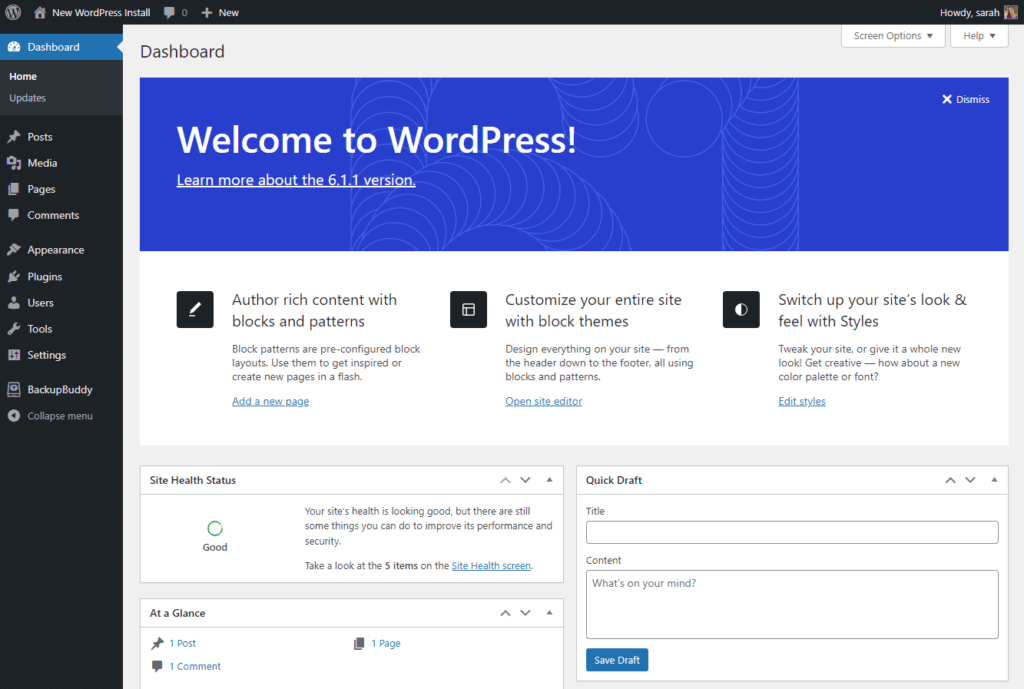Thinking of creating a website? If you’re in the Philippines, chances are you’ve heard about WordPress.
This open-source content management system (CMS) powers over a third of all websites on the internet today.
From personal blogs to major news sites, WordPress is the platform of choice for its ease of use, flexibility, and affordability.
But is WordPress a web server itself?
Does it host websites or simply provide the software to build them?
As WordPress adoption steadily rises across the Philippines, understanding exactly what WordPress is and isn’t can help you make informed decisions when creating your online presence.
In this post, we’ll unpack what WordPress is under the hood, discuss its growing ubiquity in the Philippine web landscape, and answer the question – is it a web server hosting sites in the country or simply CMS software that needs to be installed on hosting servers?
Read on to learn more.
What is WordPress?

WordPress was created in 2003 by Matt Mullenweg and Mike Little. It started as a blogging software but has evolved into a full content management system over the years.
Some key things to know about WordPress:
- It is open-source software licensed under the GPLv2 (or later). This means the source code is freely available for anyone to use and modify.
- It is written in PHP and uses MySQL as the database backend by default. However, it can also support PostgreSQL, SQLite, and Microsoft SQL Server.
- It has a modular architecture that allows users to extend its functionality through plugins and themes. There are over 55,000 plugins and 5,000 themes available.
- It is used by over 41% of all websites on the internet, from personal blogs to large enterprise sites. Some well-known sites built on WordPress include TechCrunch, The New Yorker, BBC America, and more.
So in summary, WordPress is software used to build, organize, and power websites.
It handles all the backend technical details so users can focus on creating content.
Is WordPress a Web Server?

WordPress itself is not a web server. It is simply software that needs to be installed on a web server to function. Some key points:
- Web servers like Apache and Nginx are responsible for delivering web pages to browsers. They handle HTTP requests and serve content.
- WordPress requires being installed on top of a web server (typically Apache or Nginx) to work.
- When a request comes in for a WordPress site, the web server communicates with the WordPress software to dynamically build and display the requested page.
- WordPress generates web pages, handles security, and enables functionality, but a web server actually delivers the content to end users.
So in summary, WordPress depends on web servers but is not a web server itself.
The CMS handles the logic while web servers handle content delivery.
WordPress Usage in the Philippines
WordPress has widespread usage across the Philippines powering all kinds of websites:
- News Sites – Many Philippine news sites such as ABS-CBN News, Rappler, and Manila Bulletin use WordPress for publishing articles and multimedia content.
- Business Websites – Small and large businesses in the Philippines use WordPress to create company websites to establish their online presence.
- Blogs – Filipino bloggers often use WordPress for its blogging features like post scheduling, categories, comments and more.
- E-Commerce – With e-commerce plugins like WooCommerce, WordPress enables Philippine merchants to set up online stores.
- Government – Some Philippine government agencies and LGUs use WordPress for their official websites to disseminate information.
- Tourism – Tourism boards and travel companies leverage WordPress to highlight Philippine destinations.
- Non-Profits – WordPress provides an affordable and easy CMS for Philippine non-profits to build websites.
WordPress offers a locally hosted CMS option suitable for the Philippine internet infrastructure.
It does not require powerful servers making it accessible to many. Low cost of ownership and ease of use will continue driving adoption across the country.
Wrap!
In summary:
- WordPress is an open-source CMS, not a web server itself.
- It requires a web server like Apache or Nginx to function.
- WordPress has widespread usage across the Philippines powering blogs, news sites, businesses, government agencies and more.
- Its affordability, ease of use and scalability for low-bandwidth infrastructure make it a popular CMS choice in the country.
So while WordPress depends on web hosting providers with web servers in the Philippines, the CMS itself simply provides the core software for building and managing websites and applications.
 Web HostingCost-effective shared hosting solutions
Web HostingCost-effective shared hosting solutions Reseller HostingStart your own hosting business without tech hustle
Reseller HostingStart your own hosting business without tech hustle Affiliate ProgramEarn commission by referring customers to our platforms
Affiliate ProgramEarn commission by referring customers to our platforms cPanel HostingHosting powered by cPanel (Mostly user friendly)
cPanel HostingHosting powered by cPanel (Mostly user friendly) Windows HostingOptimized for windows based-applications and sites
Windows HostingOptimized for windows based-applications and sites Domain SearchFind and register available domain names in seconds
Domain SearchFind and register available domain names in seconds All DomainsExplore and register domain extensions across the world
All DomainsExplore and register domain extensions across the world Domain Transfermove your domain to us with zero downtime and full control
Domain Transfermove your domain to us with zero downtime and full control Whois LookupLook up domain ownership, expiry dates and registrar information
Whois LookupLook up domain ownership, expiry dates and registrar information .com DomainSecure the most recognized domain for global credibility
.com DomainSecure the most recognized domain for global credibility VPS HostingScalable virtual servers. Full root access. Faster speed.
VPS HostingScalable virtual servers. Full root access. Faster speed. Managed VPSNot a tech expert? Choose our fully managed VPS server.
Managed VPSNot a tech expert? Choose our fully managed VPS server. Dedicated ServersGet the full power and complete control of your own physical server.
Dedicated ServersGet the full power and complete control of your own physical server.
